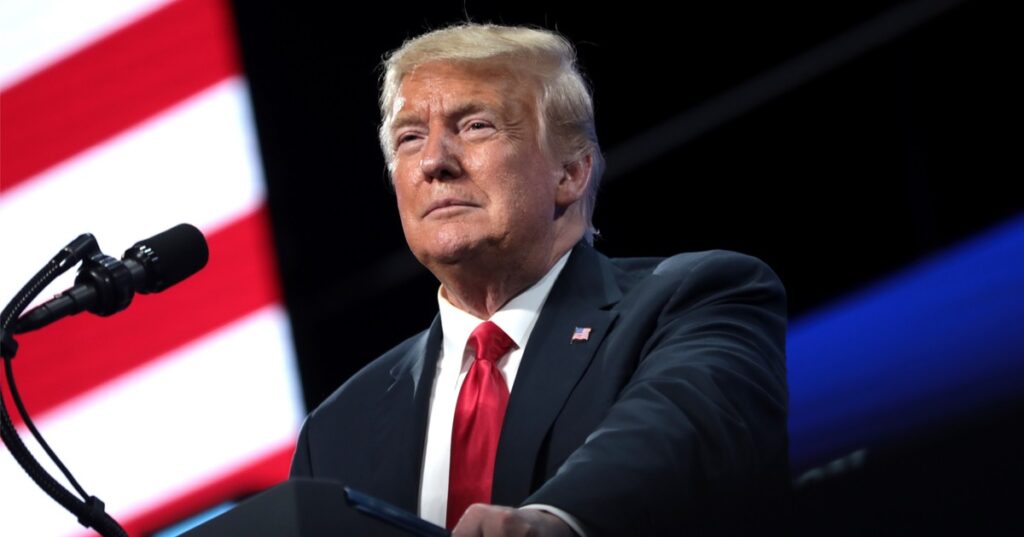Trump and Australia’s Critical Minerals Deal Aims to Blunt Beijing’s Leverage
China’s government revealed earlier this month it was cracking down on rare earth mineral exports to the U.S., a move that ramps up strategic tension between Washington and Beijing. The restriction looks like a deliberate effort to tighten control over resources the West needs for technology and defense.
In response, President Donald Trump struck a mineral deal with Australia that his MAGA base applauded and that signals a pushback against Beijing’s chokehold. The pact is pitched as a straightforward way to secure supply lines and reduce U.S. vulnerability.
Fox Business reported Trump met with Australian Prime Minister Anthony Albanese at the White House to finalize the agreement, and both nations pledged to put $1 billion over the next six months into rare mineral mining and processing facilities. That capital commitment is meant to jump-start projects that can feed American industry and defense contractors.
The deal also calls for regulatory changes to speed permitting and establish minimum floor prices to stabilize the market, moves designed to make investment less risky for private developers. For Republicans, quicker permits and clearer pricing rules are practical tools to get supply flowing faster.
It lays out cooperation on geological mapping, recycling of minerals, and restrictions on the sale of mining assets on national security grounds, which read like a coordinated industrial strategy. Those elements show this is about more than trade; it’s about protecting critical inputs and the infrastructure that refines them.
“In about a year from now, we’ll have so much critical mineral and rare earths that you won’t know what to do with them,” Trump was quoted as telling reporters. The president is betting that fast expansion and tighter safeguards will blunt any attempt by Beijing to weaponize the market.
Rare earth minerals are essential for smartphones, electric vehicle batteries, and military radar equipment, Fox Business noted, so access directly affects both consumer tech and national security. That dual-use nature means domestic supply resilience is now a top policy priority for anyone serious about defense and industry.
A U.S. Geological Survey report published in January showed China’s reserves of rare earth minerals stood at 44 million tons and the country’s mines produced 270,000 tons last year. Those numbers explain why China can try to manipulate markets and why the West is scrambling to diversify sources.
By contrast, U.S. reserves stood at 1.9 million tons, with American mines producing 45,000 tons in 2024, while Australia had 5.7 million tons of reserves and its mines produced 13,000 tons. Pooling capital and policy tools with a reliable partner like Australia makes geographic and strategic sense.
Monday’s announcement came after warnings from Republican lawmakers that this is not a normal trade spat but a strategic assault on supply chains. Michigan Republican Rep. John Moolenaar cautioned that China has made “an economic declaration of war” with its mineral export restrictions.
“China has fired a loaded gun at the American economy, seeking to cut off critical minerals used to make the semiconductors that power the American military, economy, and devices we use every day including cars, phones, computers, and TVs,” Fox News quoted him as saying in a statement. Moolenaar chairs the House Select Committee on the Strategic Competition Between the United States and the Chinese Communist Party.
Speeding permits and funding processing plants will have tangible industrial effects by unlocking projects that have been stalled for years due to financing and regulatory uncertainty. That activity should translate into jobs in mining communities and stronger upstream capacity for U.S. manufacturers.
Setting minimum floor prices is a blunt instrument but aims to prevent a race to the bottom that would kill Western projects and leave us dependent on state-subsidized rivals. Republicans will frame it as a market-preserving move to protect honest companies from predatory pricing.
Recycling and geological mapping are quieter parts of the plan but they matter for long-term supply and cost reduction, helping reuse material and target new deposits. Protecting strategic mining assets from foreign takeover reflects a view that economic policy must defend national security as much as it defends jobs.



